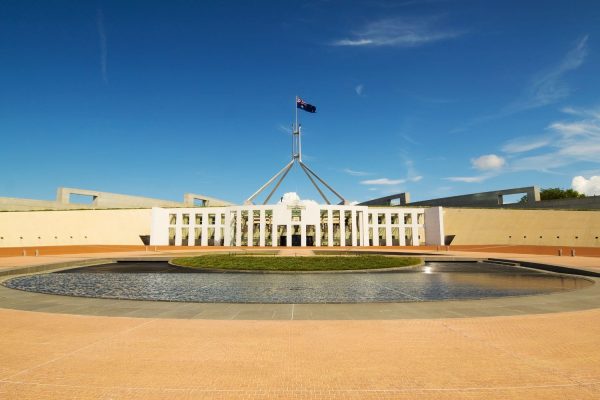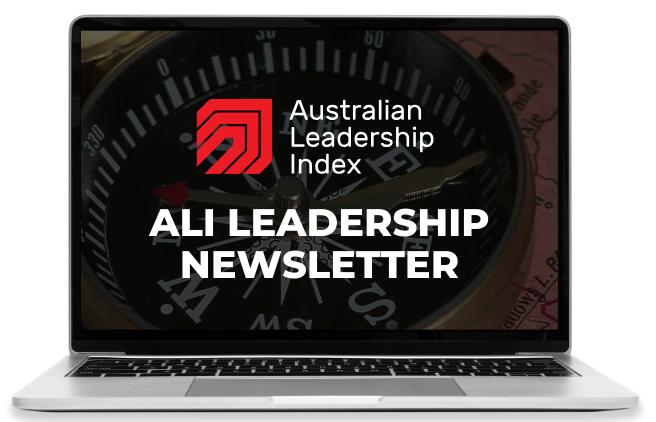As shown in a new report about civic health in Australia, prepared by the Australian Leadership Index, in collaboration with OurVoice, there are serious concerns about the state of civic health in Australia. Distrust in political leaders, political parties and governments is deep and pervasive. Civic engagement and participation is in long-term decline. Satisfaction with democracy is under pressure, especially among those who don’t think they have a political voice.
As explained by Moore-Vissing and Mallory (2020), civic health refers to the ways in which the members of a community participate in activities that strengthen individual and community wellbeing, enhance connections, build trust, help each other, talk about important political and social issues, volunteer in social and civic organisations, stay informed about their society and communities, and participate directly in crafting solutions to various social and economic challenges.
Three basic categories need to be considered to assess civic health: civic awareness and engagement, which refers to how people feel, learn about, and take actions related to societal issues; sense of belonging and social connection, which refers to how people interact and talk with others about important community and societal issues, and how much they trust and help their neighbours; and volunteering and giving, which refers to how much people are giving their time or money to serve the community or contribute to causes they care about. Australia is performing poorly on all three dimensions of civic health.
Civic engagement and participation in decline
As shown by countless studies, distrust of politicians, political parties, and government is deep and pervasive. Australians are pessimistic about their ability to influence politics. Unhappily, few see opportunities to meaningfully participate in and influence government decision-making and policy making, yet political voice is vital to both the health of, and satisfaction with, democracy.
Nationally, satisfaction with democracy has declined sharply in recent decades, with a corresponding decline in trust in politicians, political parties, and the institutions of government. Government institutions at all levels—but especially federal government—are widely perceived as serving self and special interests ahead of the long-term welfare and well-being of the general population; the public interest. These beliefs are reflected across a host of indicators, including integrity, transparency, accountability, and social licence to operate. Indeed, most people believe that government does not have a social licence to operate.
Although Australians are pessimistic about their ability to influence politics, dissatisfaction with democracy is highest among those who think our system does not allow them to influence policy decision-making. Political voice is important to Australians, but most people prefer simple forms of political voice, such as signing a petition. Indeed, civic participation is highest when it is compulsory, such as it is with voting in local council, state and federal government elections. A quarter of Australian have not participated in any civic activities in the past year.
Social connection and cohesion under pressure
In stark contrast to how Australians view the institutions of the public, private and nonprofit sectors, and especially their institutions of government, Australians regard each other and their communities much more favourably. By and large, Australians trust each other, with only a small minority regarding other people as untrustworthy.
Social cohesion in Australia has been quite resilient, especially at the local level, despite the challenges of recent years. In general, Australians generally believe that people in their community get on well with people from different national, ethnic and cultural backgrounds and are very willing to help their neighbours.
Nevertheless, social cohesion in Australia is under pressure and at risk of declining. Almost half of us think that Australian is more divided today than in the past, creating the risk of further division and polarisation. Unhappily, two-thirds of Australians believe it has gotten to the point in Australia where we are incapable of having constructive and civil debates about difficult social, cultural and political issues we disagree on.
Volunteering and giving in long-term decline
Australians’ engagement in social, community and civic groups has been relatively stable over the last two years. However, when we take the longer view, the reported rates of volunteering and participation in community, civic, religious, hobby and sports organisations gives cause for concern.
Participation in social, community and civic groups has declined in recent decades. Whereas two-thirds of Australians were members of social groups twenty years ago, that proportion is now about half.
Moreover, formal volunteering among Australians is in long-term decline. People are volunteering significantly less than they were 15-20 years ago. When civic participation is not compulsory, as it is with voting in elections, simple forms of civic participation, such as signing a petition, are preferred.
The future of civic health in Australia
Overall, this report paints a somewhat pessimistic picture about the state of civic health in Australia. Across three interlocking dimensions, civic health in Australia is under pressure. Nevertheless, it is a truism that challenges create opportunities, and this is no exception.
The widespread sense that leaders and institutions do not act in the public interest—a sense most pronounced with respect to political leaders and governments—creates the opportunity for both new leaders and new forms of leadership for the public interest (e.g., integrative public leadership; Crosby & Bryson, 2010; 2014; Sun & Anderson, 2012); forms that are more suitable for the conditions of complexity and pluralism encountered in a shared-power world (Crosby & Bryson, 1992).
Moreover, this generalised concern about the state of the public or common good creates an opportunity for renewed engagement with this ancient but vital concept. Although the concept of the common good seems familiar and commonplace, the concept is difficult to define or articulate in a precise or comprehensive way. Nevertheless, we have a shared sense of its conceptual structure (Wheeler et al., 2024), and thus common ground for thinking about the general nature of the good.
However, in complex, pluralistic societies, it is important to recognise that there is no single, determinate public or common good (Sluga, 2014) but rather a diversity of often-competing (Mansbridge, 2013) and paradoxical (Wilson, 2023) conceptions of the good. This leaves us with the search for the common good, in which the role of citizens is central.
Although experts from philosophers to psychologists can inform the discussion and deliberations that occur as part of the search for common good, in democracies, responsibility for the search for the common good falls to citizens—the ultimate source and locus of legitimacy in such societies.
Although public trust is a critical resource in democracies, and although important connections exist between declines in public trust and declines in public participation, social cohesion, and support for democracy (Devine, 2024), the distrust with political leaders and institutions also raises questions about whether trust/distrust are appropriate dispositions to hold toward agents and entities that are disinclined to serve the public good. Instead, it raises the question of whether a stance of mistrust may be more fitting, reflecting a posture of caution or scepticism (Citrin & Stoker, 2018).
Furthermore, given that half of Australians think that our society is more divided today than in the past, and the fact that many say it has gotten to the point where we are incapable of having constructive and civil debates about challenging social issues, the current dismal state of civic health in Australia presents us with an opportunity to learn how to have constructive disagreements and civic debates about the issues on which we disagree.
Finally, there are opportunities to use new and emerging technologies, including AI, to support and enable new forms of civic engagement and participation, as well as facilitating the types of discussion, deliberation and constructive disagreement necessary to sustain a truly civil society. There are myriad opportunities to foster our capacity for constructive dialogue to take us off the path to polarisation and onto the path of a thriving civic life.
THE CIVIC HEALTH OF AUSTRALIA: A NATIONAL PORTRAIT IN 30 CHARTS
This project was made possible by the generous support of the Menzies Foundation and the Graham Family Foundation.
The research team would like to extend our sincere thanks to Liz Gillies
of the Menzies Foundation and Stephen and Margaret Graham of the
Graham Family Foundation for their support and ongoing commitment
to fostering leadership for the greater good in Australia and beyond.
To view and download a copy of this report please click below.





